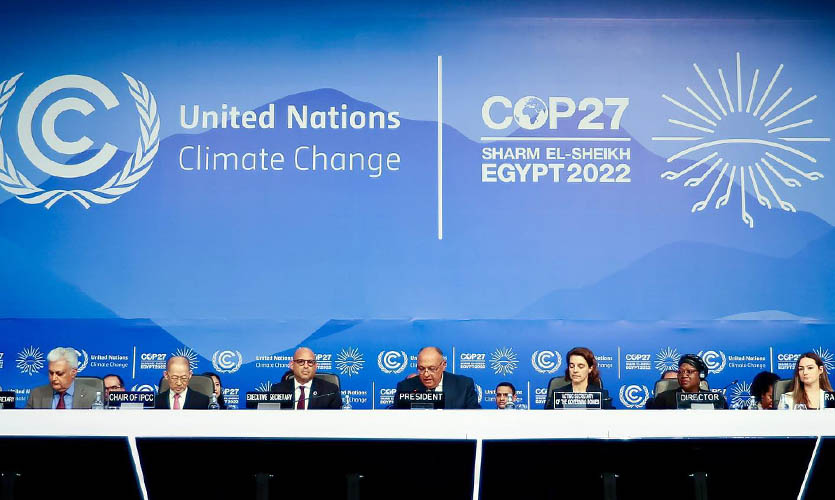For the first time, in a significant victory for developing countries, members of the annual United Nations Climate Change Conference agreed to discuss funding for countries dealing with the impacts of climate change as part of the official agenda.
The development took place 48 hours after what COP27 president Sameh Shoukry of Egypt described to be “herculean consultations” till early morning on Sunday, to push the issue on the formal agenda.
During the meeting, the countries discussed “matters relating to funding arrangements responding to loss and damage associated with the adverse effects of climate change, including a focus on addressing loss and damage”.
In addition, the parties agreed on a timeline for the process, which stipulates that funding arrangements must be finalised no later than 2024. As a result of negotiations leading up to the UN Framework Convention on Climate Change (UNFCCC), the body has agreed to include financing for irreversible and unadaptable impacts, losses, and damage in the discussion.
The UNFCCC defines loss and damage as compensation for extreme climate change events and slow-onset events such as sea level rise and glacial retreat. As defined by the stipulated norms, adaptation occurs when ecological, social, or economic systems are adjusted to address current or anticipated climatic changes.
The imperative to discuss the funding of loss and damage has been accepted throughout the past few months leading up to COP27. Although these discussions were intended to reach a common goal, there was considerable divergence in the desired outcome.
As part of the COP26 agenda in Glasgow, the G-77 and China had proposed setting up a facility. COP27 will incorporate that proposal into the official agenda as an item. In spite of accepting the need to discuss loss and damage finances, rich and industrialised countries initially opposed a dedicated funding mechanism, arguing that it was inconvenient to have a discussion with a predetermined outcome.
Despite the G-77 proposal, not all of the 130 developing countries supported the establishment of a dedicated facility. While the Alliance of Small Island States (AOSIS) emphasised the need for a UNFCCC funding facility, the Like-Minded Developing Countries, including India, China, Iran, and Bolivia called on developed countries to provide funds for damage and loss, but did not mention a dedicated fund.
The final wording of the agenda item on loss and damage finance was negotiated during the 20-hour negotiation process. The United States has informed that it will not support official discussions until there is an agreement that no liability or compensation will be sought.
As COP27 is in progress in Africa, which is experiencing severe climate impacts, the issue has gained more momentum. The year began with a rare flood that displaced lakhs of Pakistani citizens, and India, along with parts of South Asia, experienced a rare spring heatwave that killed at least 90 people, causing glacial lake outburst floods in northern Pakistan and forest fires in India – particularly in Uttarakhand and Himachal Pradesh. As a result of extreme heat, India’s wheat crop yields were reduced, resulting in a suspension of wheat exports. Meanwhile, a shortage of coal also caused power outages across the country.










